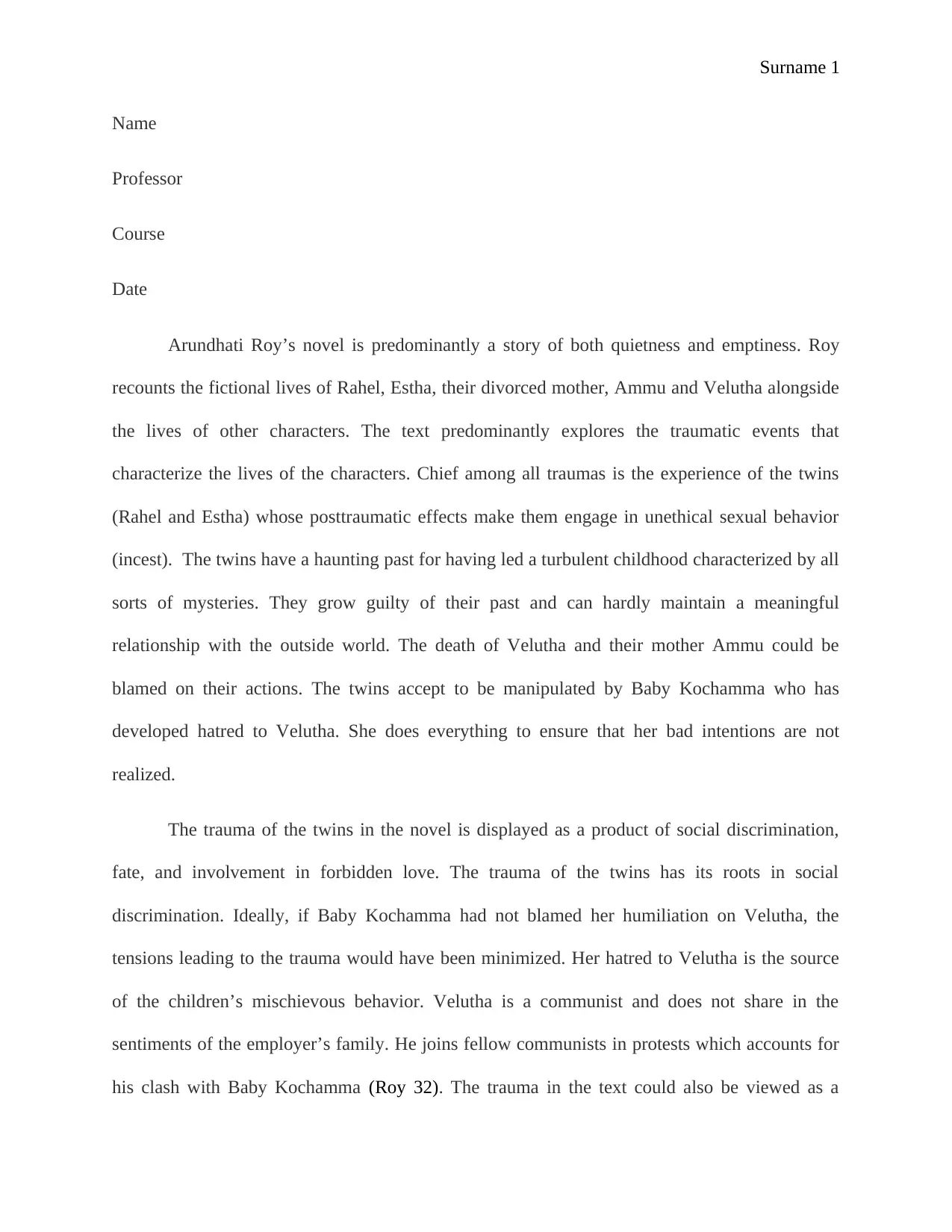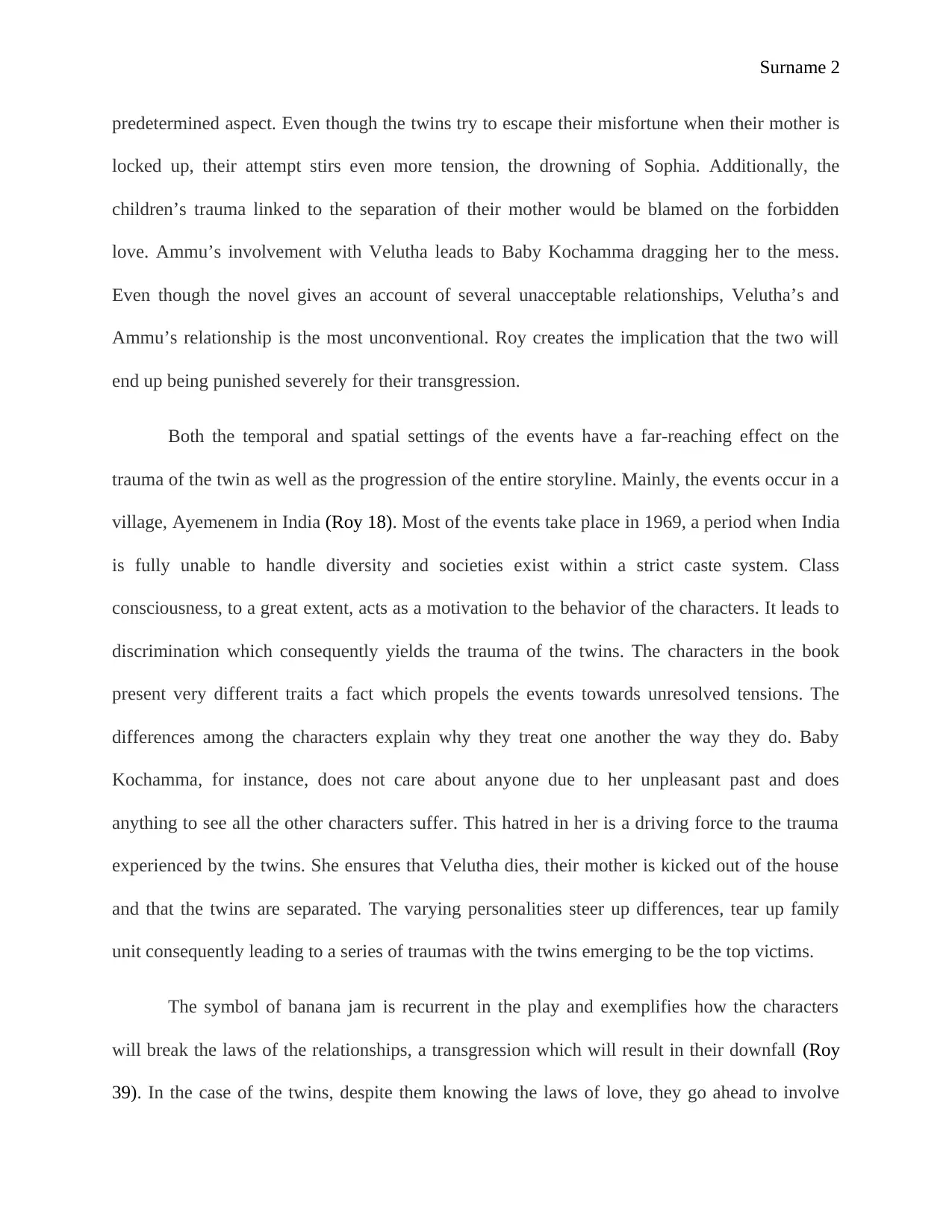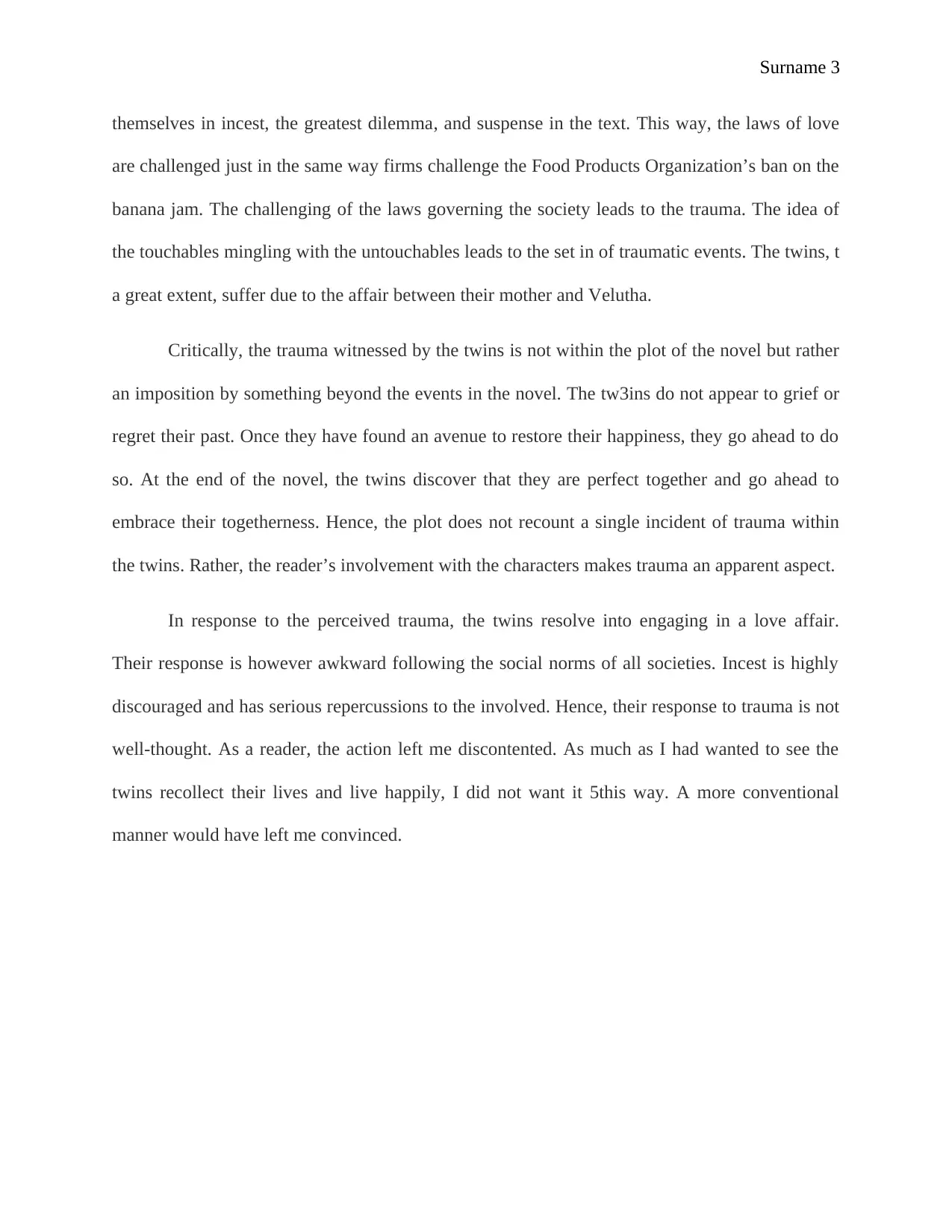Trauma and Societal Impact in The God of Small Things by Arundhati Roy
VerifiedAdded on 2023/05/30
|4
|1019
|313
Essay
AI Summary
This essay delves into the themes of trauma and societal impact within Arundhati Roy's novel, 'The God of Small Things,' focusing on the lives of Rahel, Estha, and other characters in Ayemenem, India. The analysis explores the traumatic experiences, particularly the twins' posttraumatic effects, including incest, and examines the influence of social discrimination, fate, and forbidden love on their lives. The essay highlights the role of characters like Baby Kochamma and Velutha in shaping the twins' trauma, the significance of temporal and spatial settings, and the symbolism of the banana jam. It argues that the twins' trauma is not only a plot element but also a reader's interpretation, with their response to trauma, engaging in a love affair, being unconventional. The essay provides a critical perspective on the characters' actions and the overall impact of trauma within the novel, supported by references to the text.
1 out of 4





![[object Object]](/_next/static/media/star-bottom.7253800d.svg)